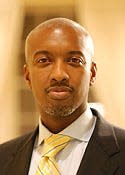2,400 Michiganders are waiting for organs that can save their lives | Opinion
We have come so far. This past Fall, America reached an extraordinary milestone – one million organ transplants since 1954. More than half of these transplants have been performed since 2007. But our successes should drive us to do even better, with the goals of improving equity within the transplant system and ensuring every person in this country who qualifies for a transplant receives one.
Currently, nearly 2,400 Michiganders are waiting for a life-saving organ. A disproportionate percentage of those waiting are people of color. African Americans make up 14% of our state’s population, but 30% of people waiting for kidneys, livers, hearts, lungs, or other life-saving organs are Black. As someone active in the donation and transplant community, these are issues I and my colleagues care deeply about and are working actively to address.
Historic institutionalized racism and the medical mistreatment of people of color have resulted in a degree of mistrust of a system that saves lives. We see this mistrust reflected in attitudes about organ donation in the multicultural community. Through organizations like the Detroit Minority Organ Tissue Transplant and Education Program (MOTTEP), we have been reaching out with the life-saving message of donation for 25 years and restoring trust between the community and transplant professionals. Through public education and community outreach, there has been a 203% increase in Black donors over the past 20 years, compared to a 103% increase in White donors over the same period.

A recent Congressional report from the National Academy of Sciences, Engineering, and Medicine (NASEM) outlined ways to improve the organ donation and transplant system. Many of the changes called for have been adopted by Gift of Life Michigan, our state’s organ procurement organization (OPO). These include having a donor care center that frees up hospital space for the recovery of organs, making sure staffers are on-site with families facing the potential of donation, and investing in new technologies. Gift of Life Michigan is part of a group of like organizations working with the medical schools of the nation’s historically Black colleges and universities to combat disparities such as increasing the low number of transplant surgeons and nephrologists who are Black. I applaud their efforts.
That stated, there is more to do. There are excellent recommendations in the NASEM report that outline system-wide improvements needed within the national organization governing organ allocation, OPOs, and transplant centers. Such efforts can improve patient access, transparency and efficiency and improve trust in the organ transplant system.
There are efforts to introduce legislation in Michigan to require education about donation in our public high schools. Ohio, Illinois, and Indiana already provide such education; Michigan should, too. There is proposed legislation to encourage family doctors to share information about donation and the donor registry. Research tells us that family doctors are among the most trusted sources of informationfor those who have questions about joining the Donor Registry. We call upon our elected officials to enact House Bill 6068 in the new legislative session.
In the meantime, each of us can do something, too. The most important thing we can do to save lives through organ, eye, and tissue donation is to Check Your Heart – the heart on your driver’s license. That’s right. Pull out your wallet and check your state identification. If you have the heart insignia, thank you! You have made your wishes known that you want to save another person’s life. Now, tell your friends and family to do the same. If you don’t have that heart, you can make a difference by adding your name to the Michigan Organ Donor Registry today at GOLM.org/register.
Dr. Silas Prescod Norman, MD, is a kidney transplant nephrologist at Michigan Medicine and serves on the board of the Detroit Minority Organ Transplant Training Education Program (MOTTEP).
This article originally appeared on Detroit Free Press: Opinion: Driver's license heart tells doctors you're an organ donor
